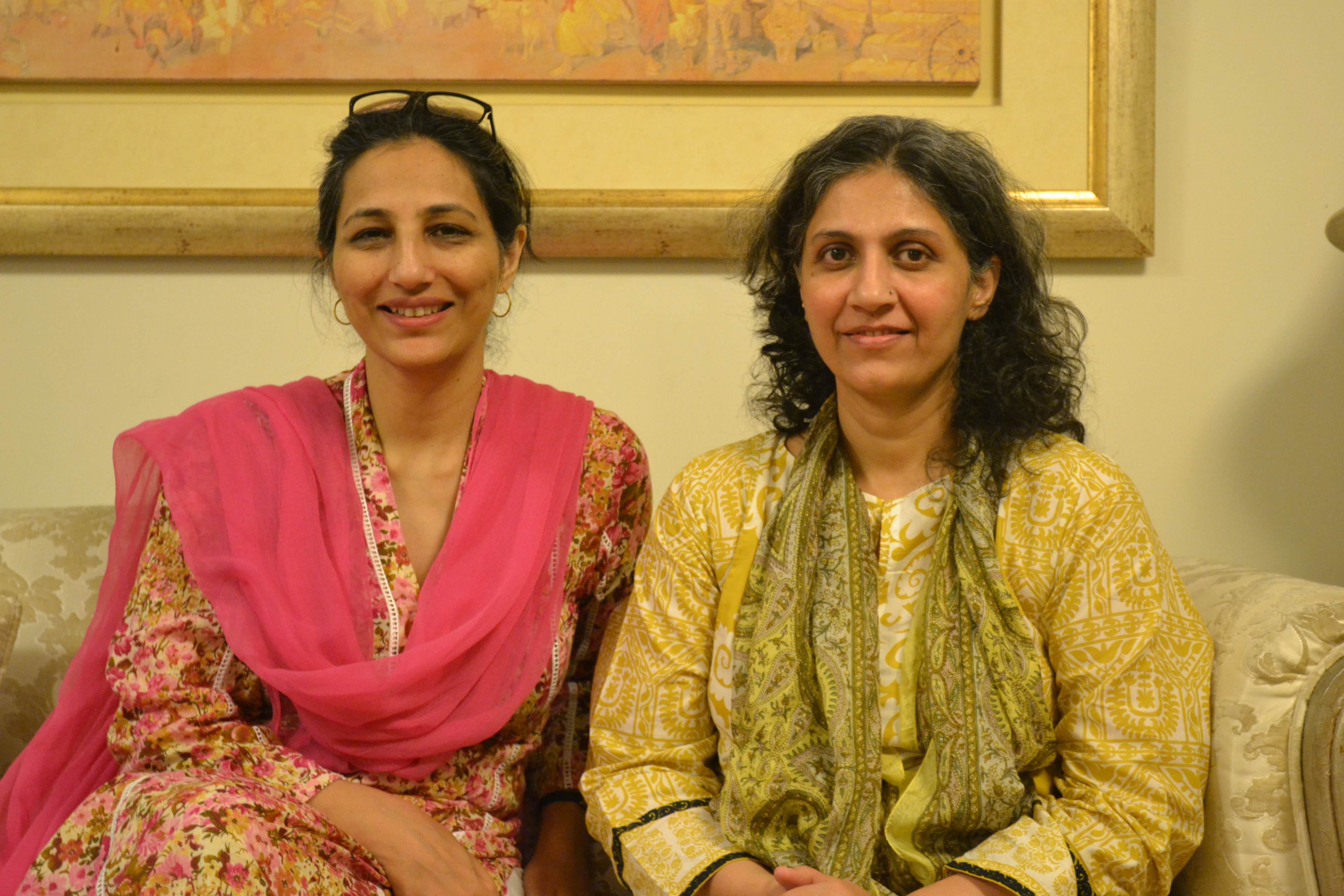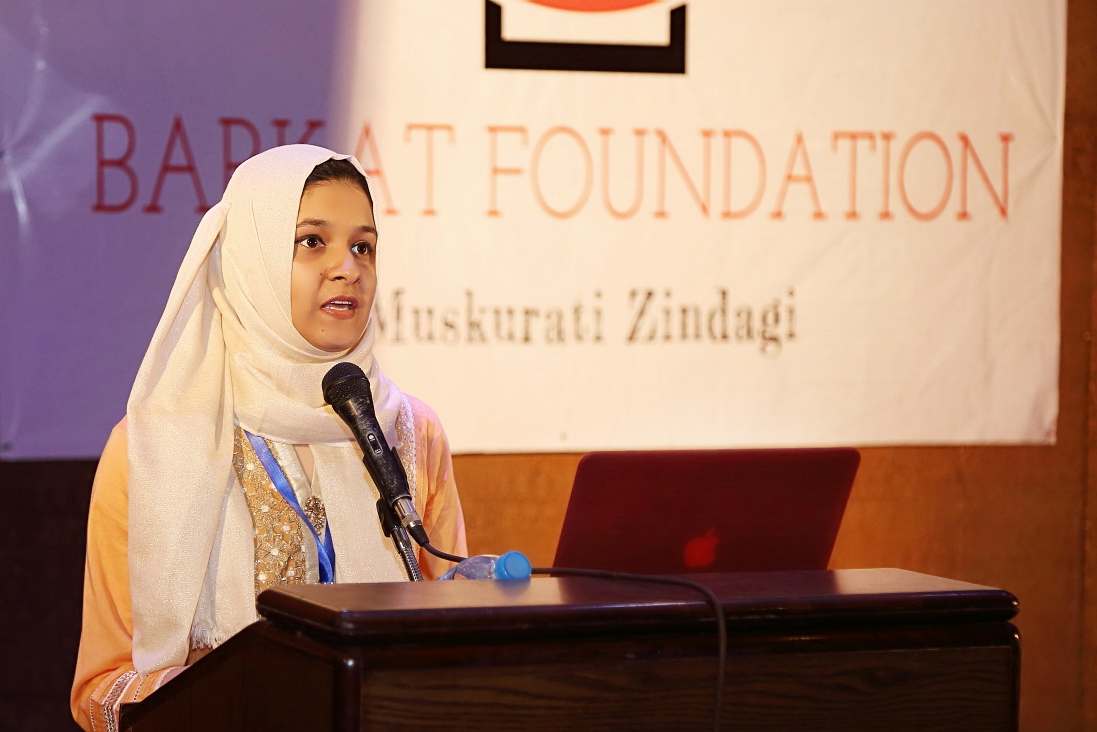My Voice Unheard: Challenging stereotypes about Pakistan through story telling
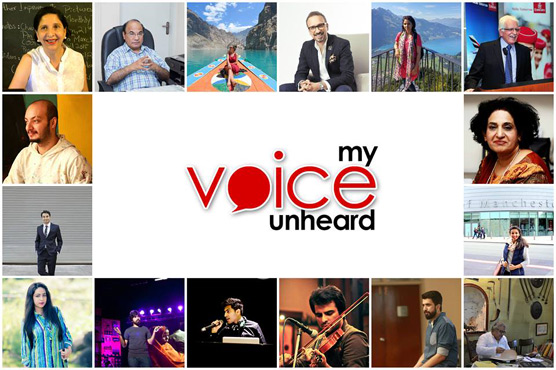
"MVU is a system that while combining visual story-telling, short biographies and memoirs shatters the stereotypical approaches of people around the world about Pakistan and Pakistanis". Photo: MVU
By Abdullah Zafar
With digital media reaching a new boom across Pakistan, several media platforms are experimenting with immeasurable possibilities that the opportunity offers.
One such digital initiative, however, is working on capturing and promoting the invisible voices of Pakistan in a bid to broaden global perspectives about a country whose positive image is less publicised.
My Voice Unheard (MVU) claims to focus on what is beyond ‘destructive media accounts’ to what ‘shapes the people of Pakistan’.
“MVU is a system that while combining visual story-telling and memoirs shatters the stereotypical approaches of people around the world about Pakistan and Pakistanis,” says Hammad Anwar, a co-founder and lead curator at the initiative.
Speaking to Dunya News, Anwar shares that the idea works around building an empathetic media design to help communities get closer. And all of this while bringing consciousness to what Anwar believes shapes behaviour, identity, culture, history and heritage in order to ‘defy general media narratives of terrorism and extremism’.
“As an individual, I consider responsibility to my community as an integral part of my identity, and I want to share it with others so that we all evolve towards a more conscious narrative which is otherwise condemned to amnesia.”
My Voice Unheard has already featured Pakistanis including Dr Narmeen Hamid & Dr Fatima Haider - Founders The Grief Directory, Nur Ali - the 10-year-old beauty guru, Musharraf Ali Farooqi - Editor, Urdu Thesaurus, Founder Kahani Say Kitaab Tak, Faraz Waqar - the mind behind "OTHER-ISTAN", Uzma Yousaf who scaled Spantik, Farhat Zahoor - first Muslim Pakistani office in Las Vegas Police Department and many others.
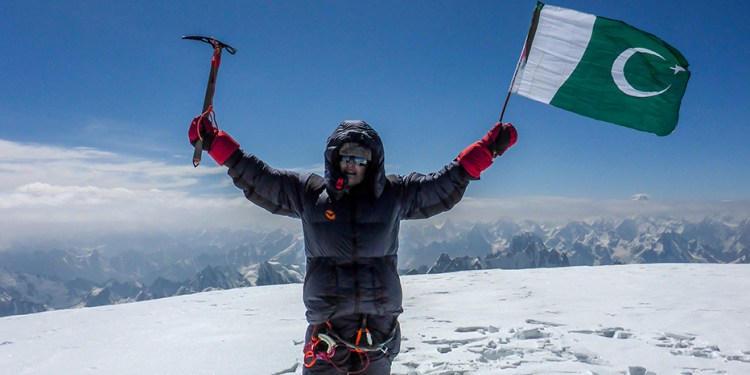
Uzma Yousaf who scaled Spantik Peak. Photo: MVU
“We aim to build a socially just platform which is all inclusive for building stronger networks and partnerships within Pakistan,” he says.
MVU’s design reflects unique combinations of anthropological story-telling while employing new media strategies to highlight stories. Explaining their core operations, Anwar categorises their work as biographies or memoirs, blogs, documentaries, illustrations and animations, ethnographic photo essays and even mobile applications.
Dr. Narmeen Hamid & Dr. Fatima Haider - Founders The Grief Directory. Photo: MVU
Through their written ethnographical account of biographies, Anwar says they capture the diversity of Pakistani’s, and in doing so ‘reveal the honest, natural and unique story of a simple Pakistani’. Based on visual anthropology, he says, the documentary series explores the works and lives of individuals. “Thereby creating stories and archiving human history,” he explains.
Other tools used by the initiative to project the image of Pakistan, which Anwar describes as one that the country and its people deserve, include interactive blogging. This includes writings on a range of diverse topics such as music, arts, business, culture, literature and even personal experiences. “This provides a socially unprejudiced and safe platform for dialogue and exchange,” he adds.
Aliha Nasrullah - President & Co-Founder at Barkat Foundation. Photo: MVU
The ethnographic photo essays are inspired by ethnographic photo journalism. “These essays are an expression of our followers using just photography. The diverse topics of these essays capture travel, life, work, education and professional experiences of individuals who explore photography as a means of telling stories.”
But the process of publishing a story entails a detailed eight-step-procedure, including identifying potential individuals for a feature, followed by prerequisites of the interview, and formalities like consent form and pictures. Next comes the interview, which is shaped into an article and reviewed by their editorial team. It is then finally published across all social media platforms.
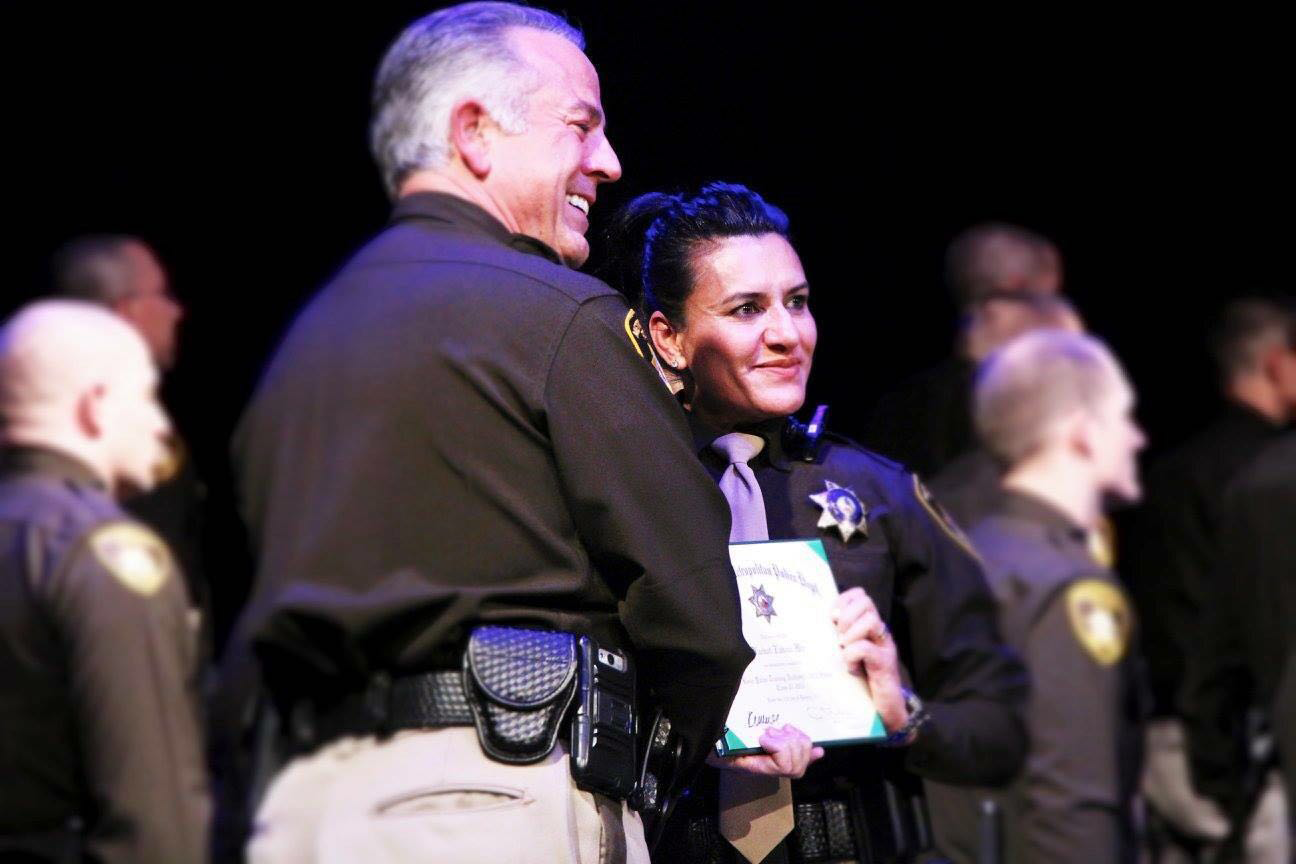
Farhat Zahoor - first Muslim Pakistani office in Las Vegas Police Department. Photo: MVU
But the latest milestone that the organisation has reached is an international collaboration with the Columbia University, Oral History, Master of Arts (OHMA) students on a project working on Muslim narratives.
Naturally for Anwar and his team it is nothing short of a ‘great opportunity’.
“We engage closely with them to materialise their field projects and complete their internship at My Voice Unheard. This gives us an opportunity to work with international students to highlight Muslim Narratives in New York,” he says.
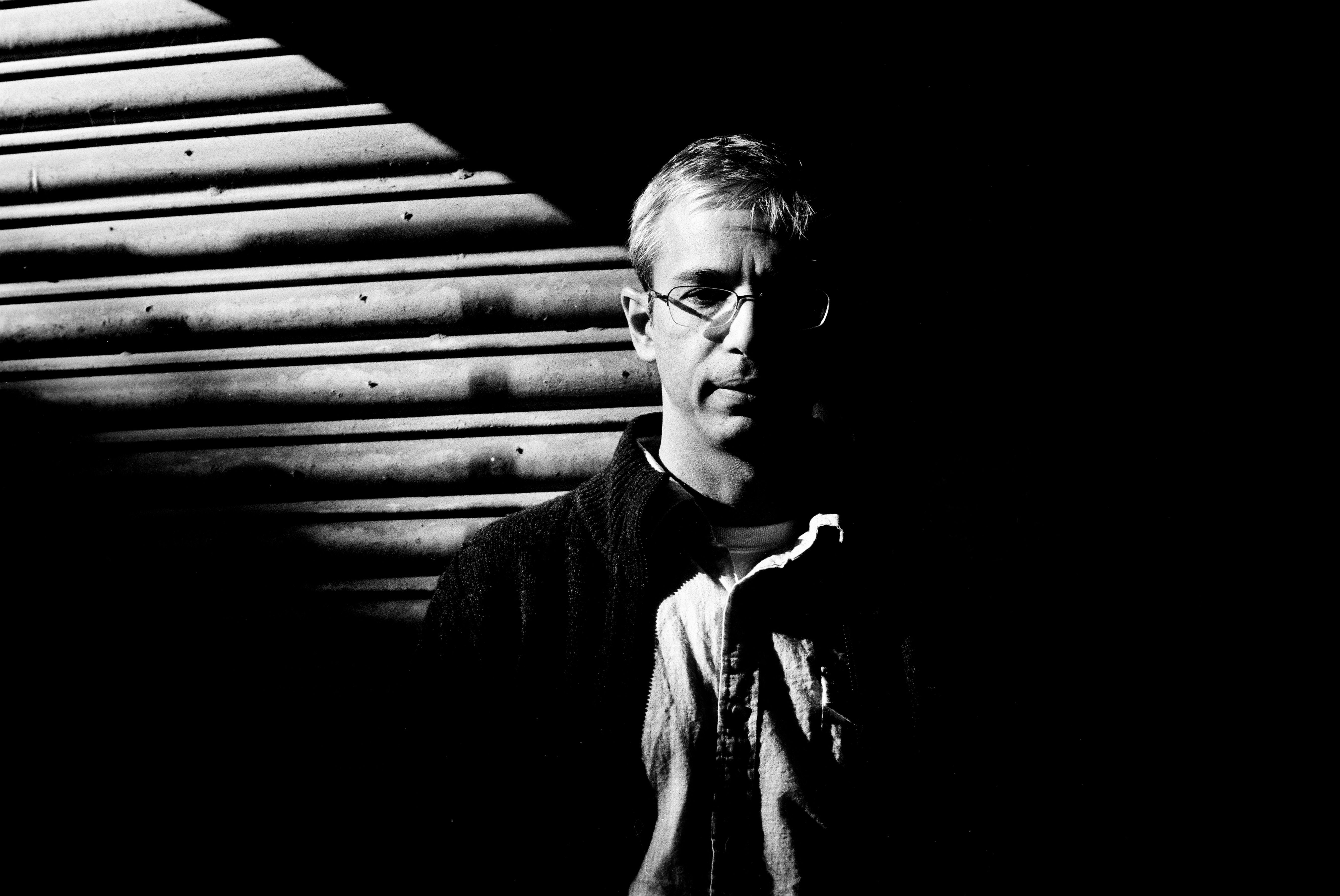
Musharraf Ali Farooqi - Editor, Urdu Thesaurus, Founder Kahani Say Kitaab Tak. Photo: MVU
The program allows the students an opportunity of interviewing individuals while focusing on the beliefs, practices and values of Pakistani Muslims in New York. And then there is the opportunity of having it published online, says Anwar.
As a means to offer counter-narrative for Muslim voices, the team is searching for stories and individuals in the US that need to be highlighted. “The internship that My Voice Unheard offers to OHMA revolves around interviewing, recording and transcribing narratives of Pakistani Muslims,” he explains.
“I am a firm believer in the power of collaborations. I believe that with the magnitude of problems we have, one sector cannot solve them on their own,” says Anwar.
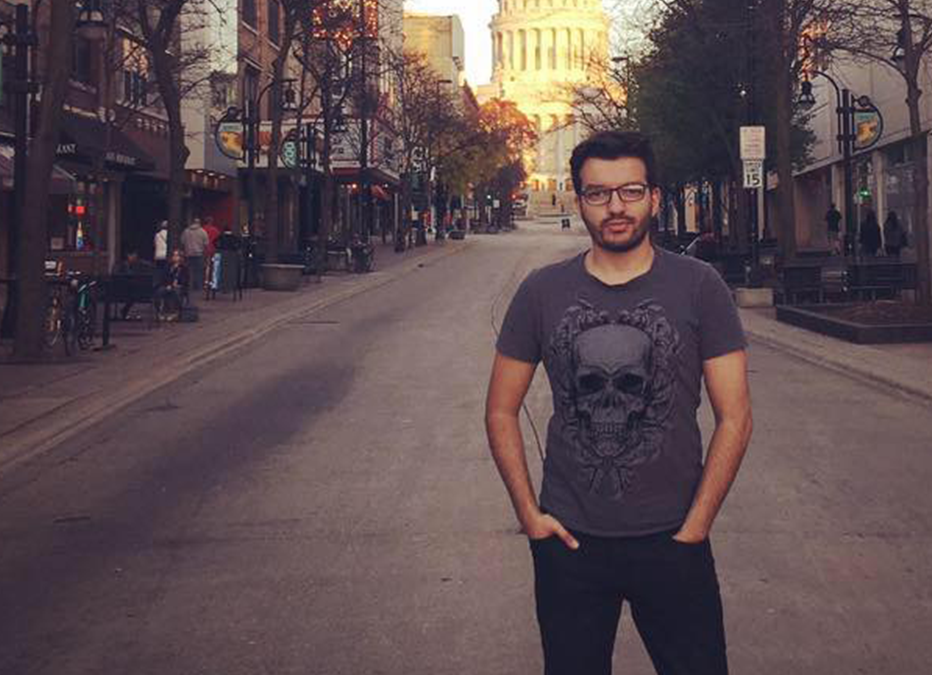
Muhammad Moiz - the creative mind behind the famous “Shumaila Bhatti”. Photo: MVU
For now, the team aims to continue disproving the ‘negative’, ‘stereotypical’ approaches of the global community towards Pakistan by highlighting stories of people who they believe are the real face of the country.

